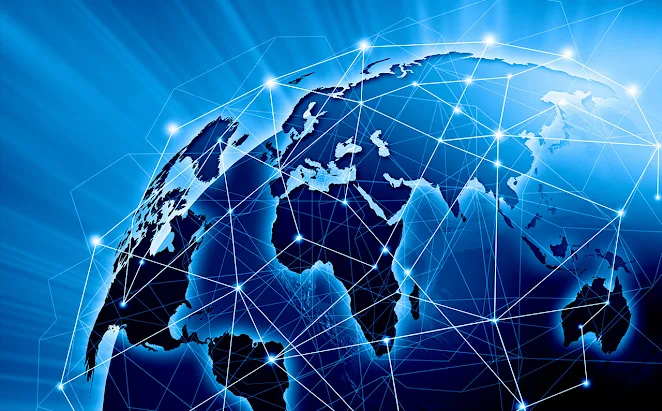According to a large-scale research undertaken by computer experts, almost a quarter of the world's Internet users live in nations that are more vulnerable to targeted assaults on their Internet infrastructure than previously anticipated.
About a quarter of the world's Internet users live in nations that are more vulnerable than previously assumed to targeted assaults on their Internet infrastructure. Many of the countries in jeopardy are found in the Global South, which encompasses Latin America, Asia, Africa, and Oceania.
Computer scientists from the University of California, San Diego, came at this conclusion after conducting a large-scale analysis (UCSD). 75 nations were surveyed by the scientists.
“We wanted to study the topology of the Internet to find weak links that, if compromised, would expose an entire nation’s traffic,” said Alexander Gamero-Garrido, the paper's first author and a computer science Ph.D. graduate from UCSD.
In different places of the world, the structure of Internet connectivity varies drastically. A vast number of Internet providers compete in many industrialized nations, such as the United States, to supply services to a big number of consumers. Direct peering is a technique in which these networks are directly connected to one another and exchange material. All of the providers can also connect to the global Internet infrastructure directly.
“But a large portion of the Internet doesn’t function with peering agreements for network connectivity,” Gamero-Garrido noted.
In other countries, many of which are still developing, most Internet users rely on a small number of providers, with one of these providers serving the vast majority of customers. Furthermore, to gain access to the global Internet and traffic from other nations, those providers rely on a small number of firms known as transit autonomous systems. These transportation autonomous system suppliers are frequently state-owned, according to researchers.
Of course, this renders countries with this form of Internet infrastructure highly vulnerable to assaults, since all it takes is a few transit autonomous systems to be crippled. These countries are, of course, vulnerable if a major Internet provider goes down.
In the worst-case scenario, all passengers are served by a single transportation autonomous system. Cuba and Sierra Leone are on the verge of reaching this point. Bangladesh, on the other hand, moved from having only two system providers to having over 30 when the government opened up that sector of the economy to private industry.
This emphasizes the need of government control when it comes to the amount of Internet service providers and autonomous transit systems accessible in a country. Many underwater Internet cable companies, for example, are state-owned rather than commercially operated, as researchers discovered.
In the Global South, researchers discovered remnants of colonialism in the structure of the Internet. In several African nations, for example, the French corporation Orange has a significant presence.
Researchers used data from the Border Gateway Protocol, which analyzes routing and reachability information transfers between autonomous computers on the Internet. They recognize that the data may be inadequate, resulting in mistakes, but believe they are addressed by the study's methodology and confirmation with genuine, in-country Internet providers.
The next phase is to assess how linked vital facilities, such as hospitals, are to the Internet and how susceptible they are.
